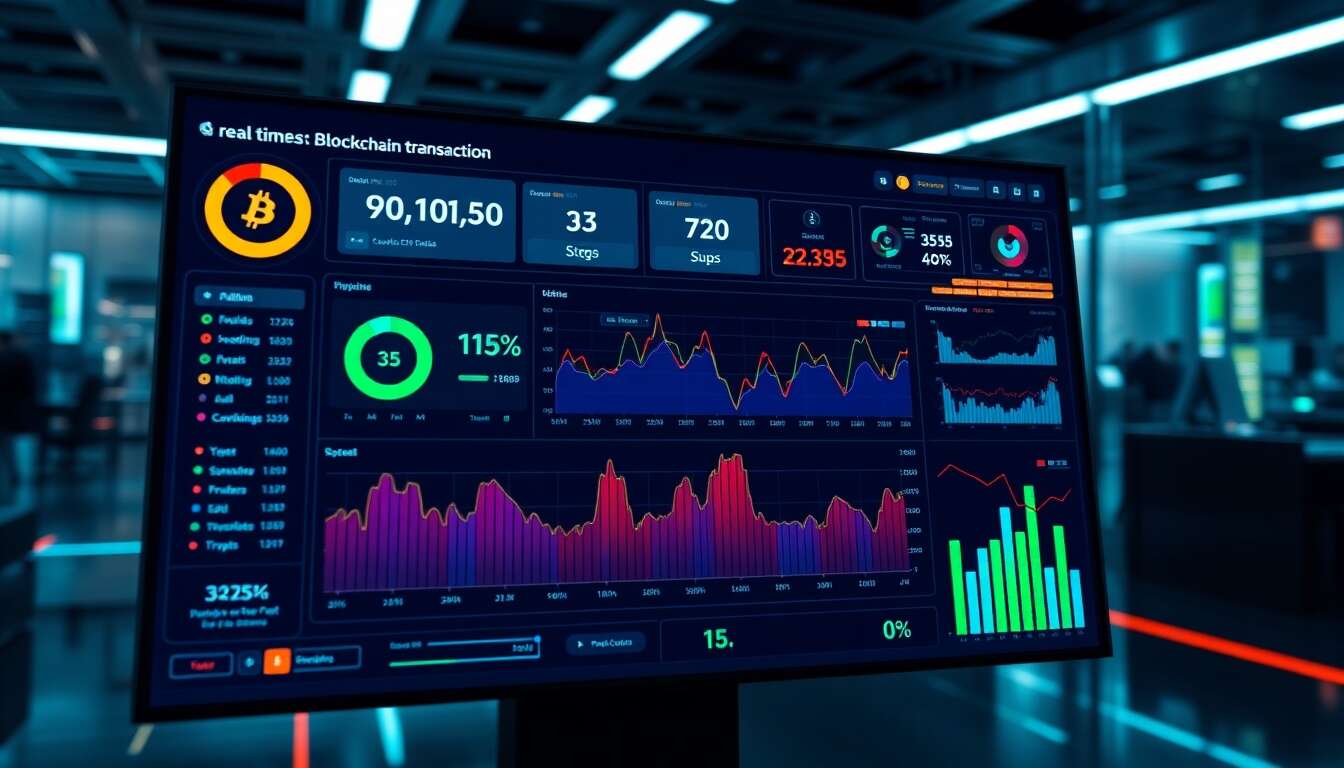Solana is rapidly gaining attention in the blockchain world due to its remarkable speed and efficiency. Known for its high transaction throughput, Solana has positioned itself as a leading contender in the race to build the most efficient blockchain infrastructure. This platform is designed to support a wide range of decentralized applications (dApps) and crypto projects, offering a scalable solution to the limitations faced by other blockchain networks.
Introduction to Solana: an ultra-fast blockchain

The speed factor
Solana’s key selling point is its ability to handle a massive number of transactions per second (TPS). With a recorded peak of 107,540 TPS during a load test, Solana has set a benchmark that other blockchains can only aspire to match. This performance underscores the potential of Solana to serve as the backbone for high-frequency trading and real-time applications that demand rapid data processing.
Unique consensus mechanism
Unlike traditional blockchains that rely on proof of work or proof of stake, Solana employs a unique consensus mechanism called proof of history (PoH). This innovative approach provides a cryptographic timestamp to transactions, ensuring that they are recorded in the correct order without the need for extensive computational resources. The result is a faster, more efficient process that reduces latency and increases throughput.
As we delve deeper into Solana’s technical architecture, we can better understand how it achieves such high speeds and scalability.
Technical architecture and operation of Solana
Proof of history explained
Proof of history (PoH) is central to Solana’s architecture. It functions as a decentralized clock, allowing validators to agree on the time and sequence of events without relying on conventional timekeeping methods. By embedding a timestamp in each transaction, PoH enables the network to process transactions asynchronously, increasing overall efficiency.
Sealevel: parallel processing
Sealevel, Solana’s parallel smart contracts execution environment, further enhances its capabilities. By allowing thousands of smart contracts to run simultaneously, Sealevel maximizes resource utilization and minimizes bottlenecks. This parallel processing capability is a key factor in Solana’s ability to handle high transaction volumes.
- Efficient validation process
- High throughput with low latency
- Scalable architecture supporting dApps
With its advanced architecture, Solana sets a new standard for blockchain performance, but how does it compare to other blockchains in terms of transaction speed ?
Comparison of transaction speeds: solana vs other blockchains

Solana vs Ethereum
Ethereum, one of the most popular blockchains, processes around 30 transactions per second. In contrast, Solana’s average throughput of 3,700 TPS significantly outperforms Ethereum, highlighting Solana’s superior efficiency in handling high transaction volumes.
Solana vs Bitcoin
Bitcoin, primarily designed for secure and decentralized transactions, processes approximately 7 TPS. Solana’s speed advantage is evident, making it more suitable for applications requiring rapid transaction processing.
| Blockchain | Average TPS | Peak TPS |
|---|---|---|
| Solana | 3,700 | 107,540 |
| Ethereum | 30 | NA |
| Bitcoin | 7 | NA |
These comparisons illustrate Solana’s position as a leader in transaction speed, but speed is just one aspect of its potential applications.
Use cases and applications of Solana

Decentralized finance (DeFi)
Solana’s high throughput and low latency make it ideal for DeFi applications. Its architecture supports complex financial instruments, enabling rapid execution of trades and asset management. As a result, Solana has become a popular choice for developers building DeFi platforms.
Non-fungible tokens (NFTs)
The NFT market, characterized by high transaction volumes and demand for swift processing, benefits from Solana’s capabilities. Artists and creators leverage Solana to mint and trade NFTs efficiently, ensuring a seamless experience for users.
- Real-time gaming applications
- Scalable dApp development
- Efficient supply chain solutions
While Solana’s applications are diverse and expanding, challenges remain as the platform seeks to solidify its position in the blockchain ecosystem.
Challenges and prospects for Solana in the medium term
Addressing network congestion
Despite its technical advantages, Solana faces challenges related to network congestion. As usage increases, users occasionally experience delays and rising transaction fees. Addressing these issues is crucial for maintaining user satisfaction and sustaining growth.
Ensuring security and decentralization
Solana must balance speed with security and decentralization to build trust among users. As the blockchain scales, implementing robust security measures and maintaining a decentralized network structure will be critical to its success.
- Enhancing user experience
- Attracting institutional investment
- Expanding developer community
As Solana navigates these challenges, it remains focused on its goal of becoming a dominant force in the blockchain industry.
Solana’s journey in the blockchain space highlights its potential to revolutionize transaction processing with its impressive speed and innovative architecture. Despite facing challenges such as network congestion and the need for enhanced security, Solana’s prospects remain promising. By continuing to evolve and meet user demands, Solana could solidify its position as a leading blockchain platform, offering a scalable and efficient solution for a wide range of applications.



